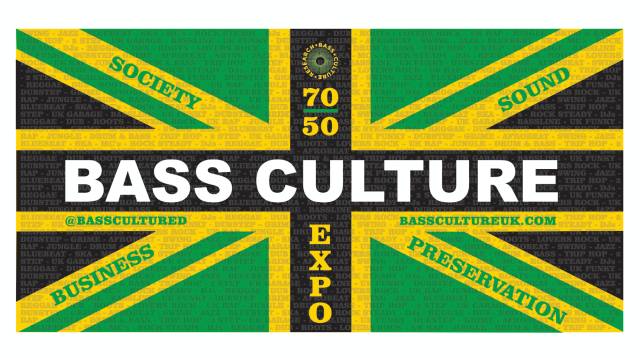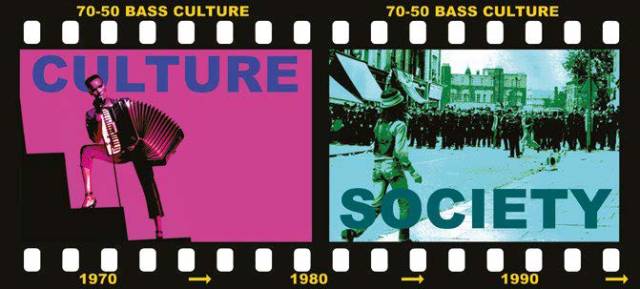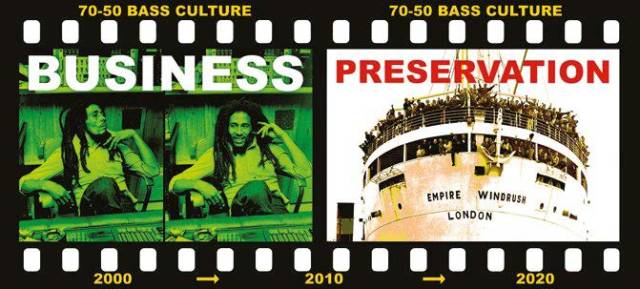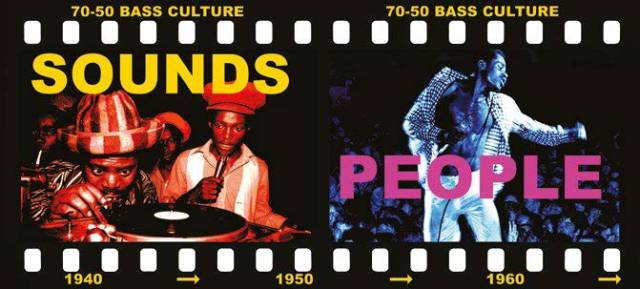Research insights
The aims of the Bass Culture research project were ambitious: it sought to re-contextualise and re-conceptualise British pop music history, laying the basis for a radical rethink of musical education and a hoped-for shift in attitudes in both academia and the culture sector. The methodology underpinning it had to be equally rigorous, ambitious and unconventional. To build support and ultimately bring together academics, museum people and the Jamaican community involved a delicate balancing act and a constant translation of sorts between community perceptions and the expectations of academics and culture professionals.
Working together as a team of academics, we were able to break down and classify our areas of interest, without disenfranchising the participants – our co-researchers. In creating the website, we were able to apply key categories that helped guide navigation of the complex layers of material, cultural and economic activity underpinning key values that were shared within the community, while mapping the contribution for academia.
The website also allowed an in-depth form of engagement we had not anticipapted, as by training participants in interview techniques and the use of recording equipment, I found we could also circumvent budgetary issues. We upskilled interviewees to write and share their stories online, bringing together many different groups – musicians, entrepreneurs and fans – from all backgrounds. Post-AHRC project, the website continues to function as the first online archive. Such is the community and academic response that it has seen two upgrades, validating interest in the subject area. It has also inspired academic conferences at Goldsmiths and SOAS, University of London; and Solent, Sussex and Leicester Universities. All the original website content has been digitally archived across three locations: the British Library, Black Cultural Archives and the University of Westminster. The material has become the basis of new Bass Culture initiatives, including a series of podcasts, so for the moment only 15% of the original interviews are hosted on the site. I have agreed to extend this research through a significant project ultimately leading to an exhibition at the British Library exploring black British music.
The Bass Culture film provides insights from key musicians and industry professionals into the creativity of the black British community across six decades of new musical genres. Driven by the perspective of youth, the film starts in the present and journeys back to the late 1950s. Its achievement is to provide an unbroken intergenerational exploration of the birth of the most significant black British music genres since the 1970s.
| Creators | Riley, M. |
|---|---|
| Description | As P-I for the AHRC project Bass Culture (£533,032), Riley’s research involves locating, capturing and preserving memories, experiences and ephemera from three generations of musicians, music industry participants and audience members. The associated communities and networks have played a key role in transforming Britain into a multicultural society, yet their contributions have previously remained absent from the country’s cultural institutions. The output components draw on original interviews, new and archival imagery to inform both a large- scale multimedia, interdisciplinary exhibition at Ambika P3 (Bass Culture 70/50, 2018), and a collaboratively produced documentary film (Bass Culture, 2018). Included are a wide range of oral testimonies and previously unseen images (representing over 50 years of London-based content) that explore and make manifest reference points connecting the influence of British sound-system culture to modern and contemporary music, fashion and cultural forms today. Riley’s book chapter (2014) draws on his experiences as a black British musician of Jamaican heritage to contextualise the origins and emergence of black British music in the 1970s and 1980s against the socio-political backdrop of the era. Riley devised a methodology for working together with wide-ranging collaborators to break down and classify areas of interest, without disenfranchising the participants or co-researchers. In creating the online resource, the project’s researchers were able to apply key categories that helped guide navigation of the complex layers of material, cultural and economic activity underpinning key values that were shared within the community, while mapping the contribution for academia. The Bass Culture project successfully united academics, museums and the African Caribbean community in a series of projects that helped make visible the Jamaican contribution to British popular music and culture and lay the basis for popular music teaching that more accurately reflects that influence. |
| Portfolio items | Bass Culture film |
| Bass Culture 70/50 | |
| Basscultureduk.com | |
| Bass Culture: an alternative sound track to Britishness | |
| Ticket Master State of Play Grime Report | |
| Jazz Jamaica All Stars: The Trojan Story - Live Event | |
| Year | 2014 |
| Publisher | University of Westminster |
| Keywords | CREAM Portfolio |
| Digital Object Identifier (DOI) | https://doi.org/10.34737/qqvqz |



